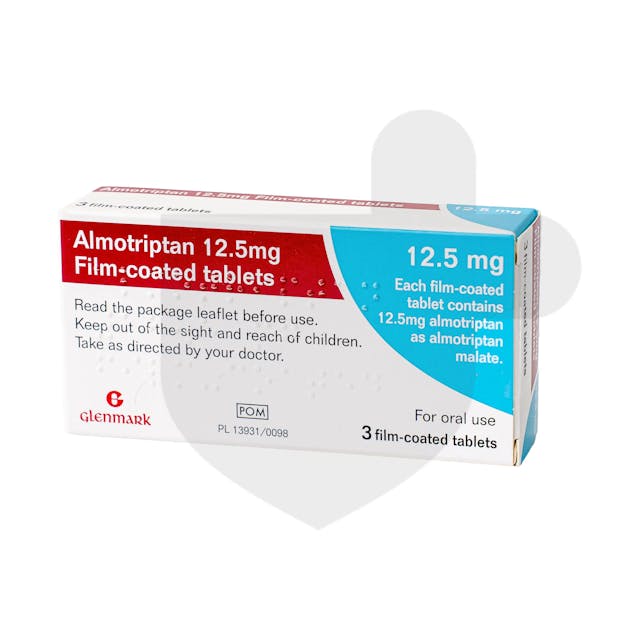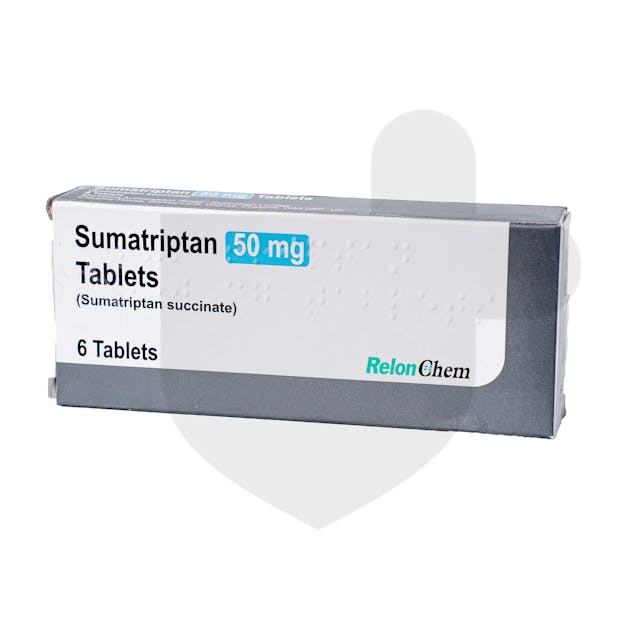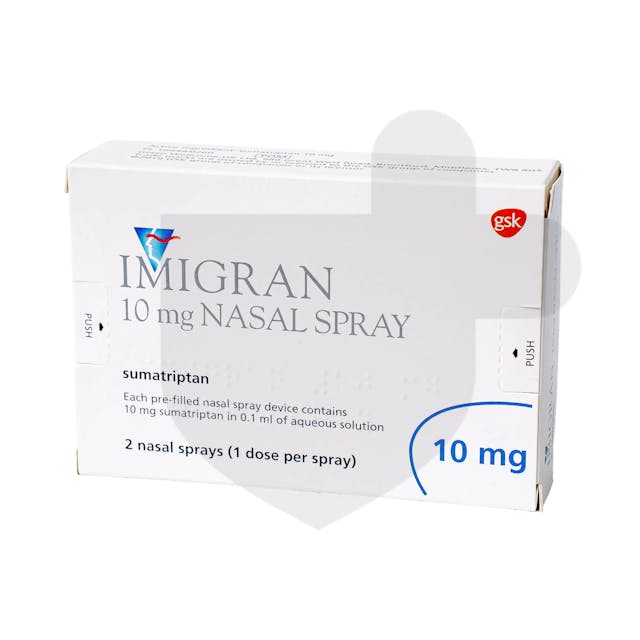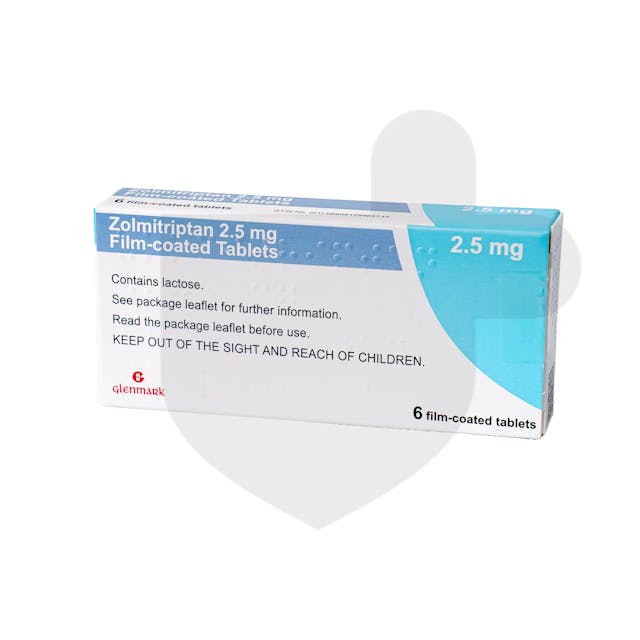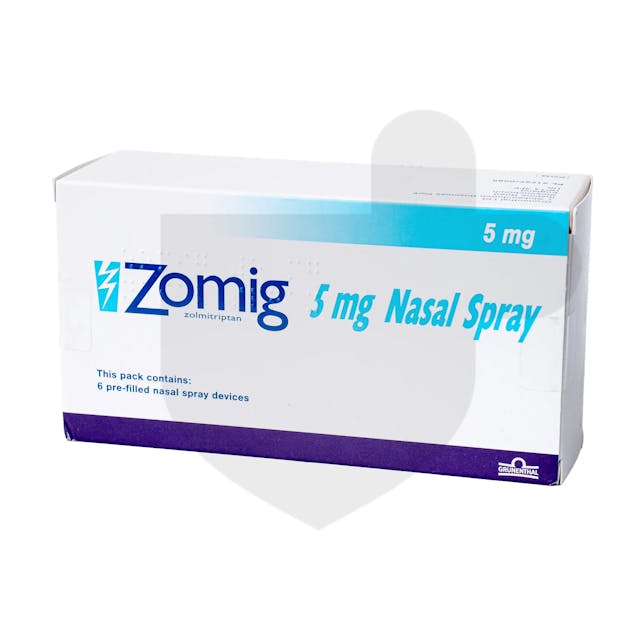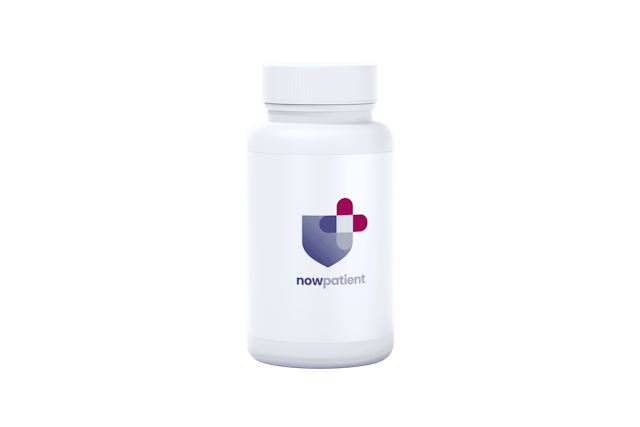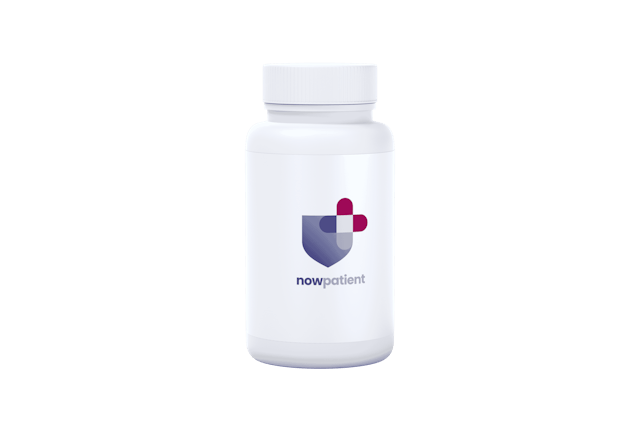Migraines
Treatment & Medications
With NowPatient's private treatment plans you can treat Migraines safely and easily in a few simple steps. Get started by selecting the available treatments you are interested in below or by hitting the start consultation button.
This content is intended for UK audiences only
Available treatments
Compare treatments
Get started with the right treatment for you
Treatments & Medications
delivery
service

The exact cause of migraines is not known, but genetics are thought to play a role. Other factors are thought to include stress, hormonal changes, foods, sleep, and environmental factors. Migraine often appears as a severe and throbbing pain down one side of the head. Here, we will take a closer look at the causes, symptoms, and treatments available.
Common symptoms of migraine
Symptoms of migraine vary from person to person, but common symptoms include moderate to severe head pain that may throb. Other symptoms include feeling sick, and sensitivity to loud noises, light and smells. The pain from migraines also becomes worse with physical activity.
Migraine attacks consist of four separate phases. These are known as prodrome, aura, headache, and postdrome. Not everyone will experience each phase, and the length of time of each phase may also vary.
Prodrome symptoms
These symptoms occur before a migraine attack and serve as an early warning sign. Symptoms include:
- Tiredness
- Food cravings, changes in appetite, increased thirst
- Mood changes
- Bloating, constipation, or diarrhea
Aura symptoms
These occur before or during a migraine attack. Neurological symptoms may include:
- Visual disturbances, such as flashing lights or bright lights
- Pins and needles
- Dizziness
- Difficulty speaking
- Changes in smell, taste, or touch
Headache Phase Symptoms
This is the most recognizable phase. Symptoms include:
- Intense, throbbing migraine headaches, normally on one side of the head
- Sensitivity to light and sound
- Feeling sick or being sick
- Pale clammy complexion
- Tiredness
- Difficulty concentrating
Postdrome symptoms
Postdrome symptoms (migraine hangover) follow a migraine attack, symptoms include:
- Feeling tired or irritable
- Muscle pain or weakness
- Food cravings
- Lack of appetite
Causes and other migraine triggers
The cause of migraines is not fully understood, but is thought to be both genetic and environmental. Migraine attacks may be spontaneous, run in families, or have triggers such as stress or hormonal changes.
Risk factors and demographics
Women are three times as likely to suffer from migraines, with changes in the balance of hormones during menstruation influencing the frequency and severity of the migraine attack. Those with a family history of migraines or other medical conditions such as depression, epilepsy or anxiety, may also be more likely to develop migraines.
Types of migraine
There are many types of migraines, with their own specific symptoms. The most common types include:
- Migraine without aura (common migraine): Symptoms include severe headache without any warning signs or visual disturbances
- Migraine with aura: Symptoms include warning signs, such as visual disturbances (flashing lights), pins and needles, dizziness, and difficulty speaking
- Silent migraine (migraine aura without a headache) presents with aura symptoms but without headache pain
- Menstrual migraine: This is affected by hormonal changes, and occurs in women before, during, or after their periods
- Vestibular migraine: Symptoms include problems with balance, dizziness, nausea and vomiting, with or without a headache
- Abdominal migraines: These mainly affect children, causing stomach pain, nausea, and vomiting
- Hemiplegic migraine: This may cause temporary paralysis down one side of your body
- Retinal migraine (ocular migraine): This may cause temporary, partial or complete loss of vision, with a dull ache behind the eye that may spread
- Chronic migraine: This type of headache lasts for at least 15 days each month
- Migraine with brainstem aura: Symptoms include dizziness, loss of balance, slurred speech and double vision, before the headache
- Status migrainosus: This is more rare and severe and can last more than 72 hours
Migraine treatment options
There is no cure for migraines, but several treatment options are available. Options are acute (immediate relief during an attack) and preventive (reducing the frequency and severity of migraines).
Acute medications
Acute treatment is used to relieve pain and symptoms during a migraine attack. Common acute migraine medications include:
- Over-the-counter nonsteroidal anti-inflammatory drugs, such as ibuprofen and acetaminophen for the relief of mild to moderate migraine pain
- Triptans (such as rizatriptan or sumatriptan) that narrow blood vessels and reduce inflammation in the brain. These are available as oral tablets, nasal sprays, or injections
- Anti-nausea medications, such as metoclopramide, used to relieve nausea and vomiting
Preventive measures for migraine
Preventive treatment reduces the frequency, severity, and duration of the migraine by treating the underlying causes. Preventive medications include:
- Beta-blockers, such as propranolol (also used to treat high blood pressure) work by relaxing blood vessels
- Antidepressants, such as amitriptyline, that work by changing neurotransmitter levels in the brain
- Anti-seizure medications, used to treat epilepsy are effective in preventing migraines
Calcitonin Gene-Related Peptide (CGRP) monoclonal antibodies
These are a newer class of preventive medications that work by blocking the action of CGRP. They are injected once a month or every few months, depending on the medication.
Non-medication treatment approaches
As well as medication and lifestyle changes, complementary therapy may also play a role in the management of migraines. Speak to a healthcare professional for further advice.
- Biofeedback, which helps gain control over heart rate and muscle tension
- Relaxation techniques, such as meditation
- Cognitive-behavioral therapy (CBT) to identify and change negative thoughts and behavior
- Avoiding certain foods, such as cheese, caffeine, alcohol, and foods containing monosodium glutamate
- Exercise, to promote the release of natural pain-relieving chemicals, such as endorphins in the brain
- Magnesium supplements, which have been shown to provide some benefit when used in combination with other treatments
- Acupuncture
Migraine in women
Many women experience migraine attacks before, during, or after menstruation, during pregnancy or menopause. Understanding how hormonal changes can affect migraines may help with the management of migraine symptoms in women.
Conclusion
Understanding the causes, symptoms, and treatment options for migraines, can help you take the necessary steps to manage your symptoms more effectively. Speak to a healthcare provider for medical advice and to discuss what the best treatment options are for you.
Sources
What is NowPatient
Telehealth and Online Pharmacy
NowPatient is a licensed online pharmacy and doctor service that is available around the world. Our service is FREE and packed with valuable features that can benefit your health such as medication reminders, educational blogs, medically approved symptoms checker, UK NHS online pharmacy, private treatment plans, Rx Advantage card, health conditions information, affordable medications options, genetic testing, home test kits, health risks, pollen meter, air quality monitor, weight loss plans, drug savings programs and lots more!
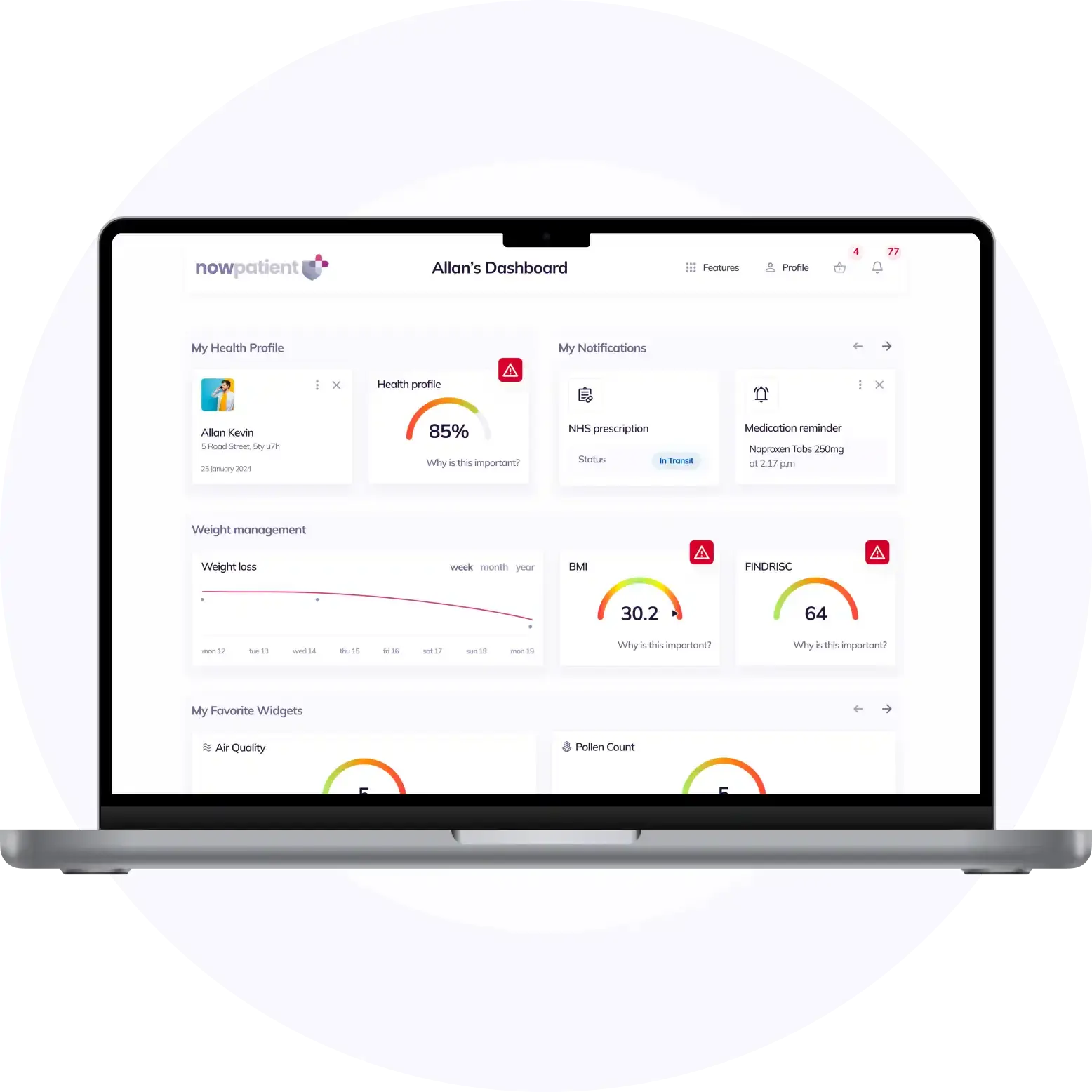
WHY WE BUILT NOWPATIENT
To improve the lives of everyone by making high-quality care accessible and convenient
We are here to improve lives. Our service gives you access to smart features and resources that can help empower you to take control of your health and improve your health outcomes. All this, in one place, for FREE. We strive to bring a fresh perspective to managing health. NowPatient can be accessed by downloading the App or using your web browser.
Download our app today

Can I trust NowPatient
Meet our medical team
We are a passionate group of clinicians and medical writers covering a broad range of specialities with experience operating in health systems in the United Kingdom & United States. Providing excellent care and advice is at the heart of everything we do. You can read more about our medical team by visiting the medical team page or learn more about how we curate content by visiting our editorial process
